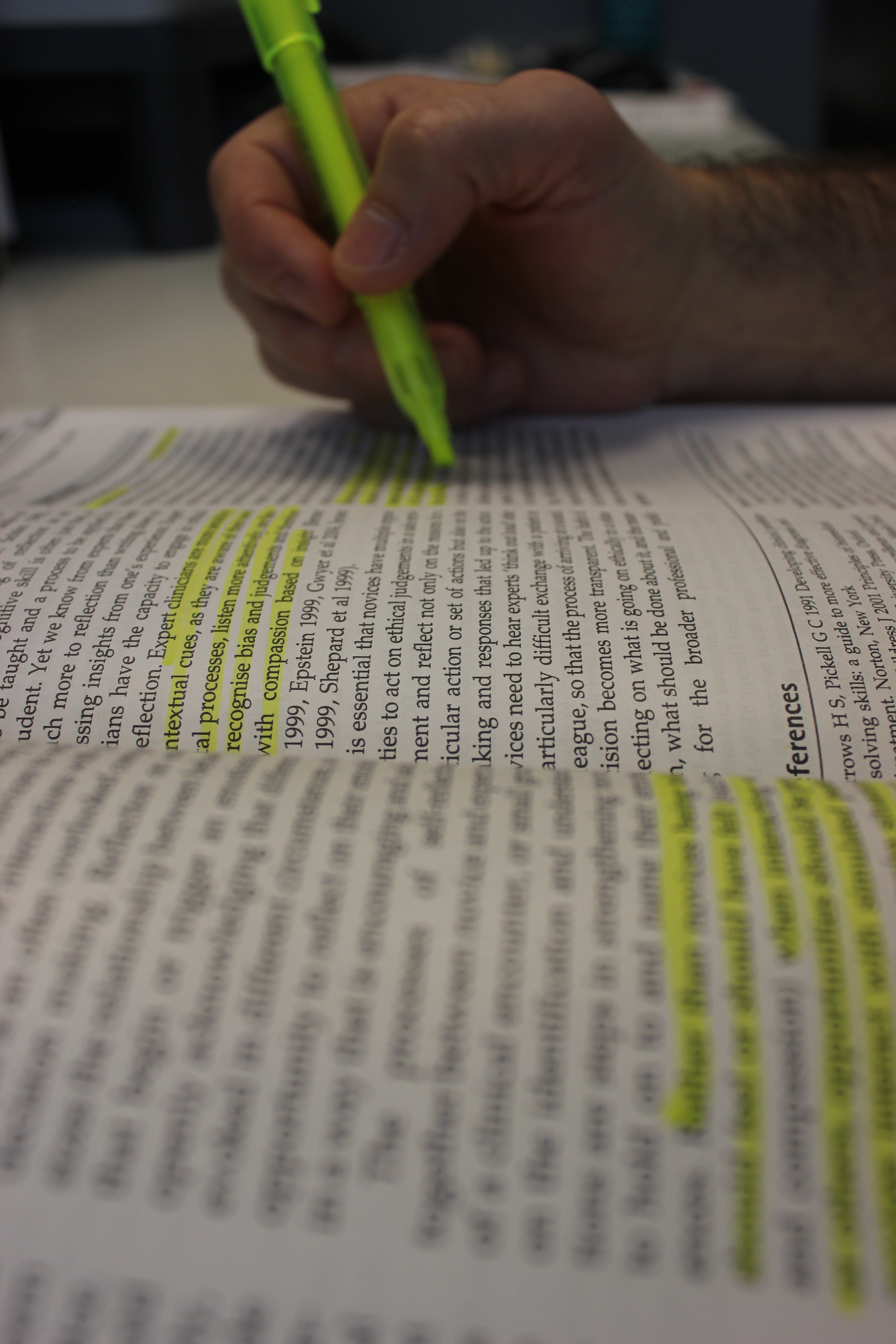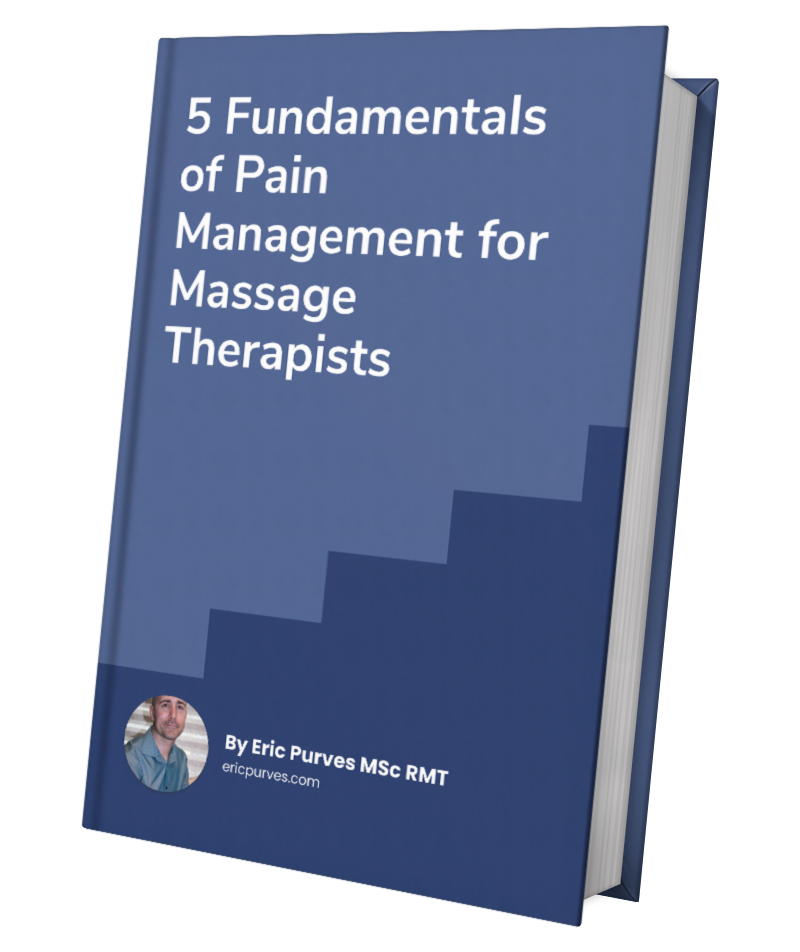Sound like a dull title? Please keep reading, it should get better. I believe talking about and understanding research does not need to be boring or difficult. Analyzing the intricacies of research from scientific and professional journals isn’t fun for most. However, being aware of what the research means and how it is applicable to the profession is necessary to maintain a high level of professionalism and integrity.
An ethical obligation
As regulated healthcare professionals we have an ethical obligation to provide our patients with advice, treatment and self-care utilizing the most relevant research available. Biological plausibility and defensible arguments are the key areas one needs to focus on when reading research. An area of education I would love to see included in massage therapy curriculum would be a focus on understanding and interpreting the biological implications of what the manual therapy, rehabilitation and pain research means. Are the authors conclusions consistent with our current understandings? Are assumptions being made that are unsupportable from a biologically plausible perspective? There is a lot of crap research out there that often gets thrown around to support someone’s biases and personal beliefs about how their modality or favourite intervention works. With a more thorough understanding of anatomy and physiology, backed up with research on connective tissue, neurophysiology, and the complexities of the multifactorial pain experience, these needless divisions that permeate our profession would no longer be necessary. My desire is to see us less incorrect in our beliefs and practice behaviours.
Using research to inform practice is a necessary component of being a healthcare professional. Being ignorant or avoiding the science is unacceptable, There is nothing wrong with having beliefs, as long as those beliefs aren’t harmful to those who seek care from us.
moving forward
It is unfortunate that many in our profession are not actively searching for and incorporating current relevant research knowledge into clinically meaningful practice contexts. This is an area I strive to be better at too. It takes time, patience, discussion and self-reflection. Keeping an open mind and being aware of your weaknesses in areas of research literacy and clinical practice is paramount for one’s continual development as a healthcare professional.
Without a history of academia in massage therapy, we need to adopt the information other professions and scientists are providing. We must incorporate that into our curriculums and scope of practice. With very scant research specific to massage therapy this is the best strategy we can pursue right now.
from techniques to concepts
Many discussions I encounter revolve around the desire for RMT’s to have someone research their preferred techniques, modalities or indefensible theories. I feel like this is a waste of time and resources. It also can provide a false sense of efficacy if the outcomes show positive results. If a study shows a desired outcome, one needs to be careful at inferring the mechanisms involved. There is a large and continually growing body of research on manual therapy which suggests neurologically and contextually based rationale for the clinical effects experienced.
When research shows that it is impossible to provide any meaningful long lasting change to connective tissues (ref, ref, ref) that the interface between the skin, fascia and underlying connective tissues is frictionless (ref) and that manual therapy effects can be attributed to peripheral and central mechanisms (Explain pain Supercharged), then these are the explanations we should provide and this is the framework that needs to be adopted by clinicians. We also need to be comfortable with the concept that the majority of our effects are non-specific (ref, ref,) and that is okay, because we still have the ability to influence positive clinical outcomes.
Clinical experience is extremely important and I never intend to demean its value. I love massage therapy and I am not a technique basher. However, any massage therapy modality may be effective at achieving the desired clinical outcomes. It is the explanation we provide behind those techniques that needs to change. Our old connective tissue based stories are unhelpful and steal the self-efficacy that patients deserve. As clinicians we must know our role in the rehabilitation process. We can provide a safe, effective and ethical treatment that provides short term analgesia through touch and the caring context of our clinical interactions and treatment environment. Longer term strategies should be facilitated by the clinician that includes appropriate education and self-care.
a new narrative
Acknowledging our biases and being open minded to having those challenged is the sign of a good clinician and will enable you to become better at reasoning and making good clinical decisions. Holding on to our beliefs that were indoctrinated into most of us during our entry-level education can be very difficult to let go. I have personally gone through this painful journey of having my beliefs and practice behaviours challenged. It was a slow and arduous process, but it was necessary for me to move forward and grow as a therapist. I am not implying that those who hold onto outdated and unsupported beliefs are bad therapists. Sometimes in these blogs it can come across that through challenging other ways of thinking one is suggesting that there is the ‘correct side vs the wrong side.’ That is not what I am intending. What I want to get across is there is the side that is using science and research to support their explanations and clinical outcomes vs those that are achieving clinical outcomes using outdated narratives that are not supported. When patients come to see us, it is the outcome that matters most. However, what if that outcome comes with an explanation and a story that is based on an outdated belief, or is unsupported by current understanding of anatomy, physiology or the science of pain? What if that story is harmful to them and doesn’t give them the strategies and confidence to improve? I would argue that the stories we tell our patients are more impactful than what we do with our hands. Words and expectations matter (ref), and how we shape the belief and expectations of patients can have a profound effect. There is always the danger of a nocebic response which can lead to long term reliance on a passive therapy creating a feeling of fragility, weakness and little control over their well-being.
RMT’s make their living through soft tissue treatments, we can help influence change in our patients, but we need to change our beliefs and practices for treating those in pain by simplifying our messages and avoiding manual techniques, messages and advice that are not based on current science. We have an ethical obligation to be less wrong and our patient’s deserve it!
If you have any questions or want to reach out for resources please don’t hesitate to connect with me.
~Eric




